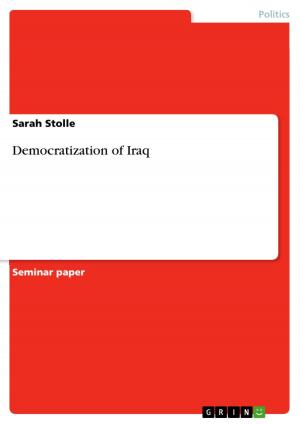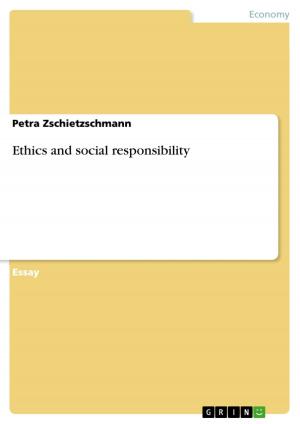Interpreting the Terror - Circumstance or ideology?
Circumstance or ideology?
Nonfiction, History, European General| Author: | Martin Röw | ISBN: | 9783638373432 |
| Publisher: | GRIN Publishing | Publication: | May 3, 2005 |
| Imprint: | GRIN Publishing | Language: | English |
| Author: | Martin Röw |
| ISBN: | 9783638373432 |
| Publisher: | GRIN Publishing |
| Publication: | May 3, 2005 |
| Imprint: | GRIN Publishing |
| Language: | English |
Seminar paper from the year 2004 in the subject History Europe - Other Countries - Modern Times, Absolutism, Industrialization, grade: B, University of Auckland (History), course: History 324 - Old Regime and Revolution in France, 15 entries in the bibliography, language: English, abstract: The Terror of the French Revoltion has devided the world of scholars right from the beginning. It is a crucial issue which was often connected with emotions and political attitudes, when it was approached. Many questions rose when relating the violence and the Terror with the genuine ideology of the French Revolution. Was it a part of it right from the beginning? Or shall we see the Terror as an accident incompatible to democracy and the origins of the French Revolution? This essay attempts to depict the reasons for the terror with the aim to be able to judge the Terror. To judge means to be able to distinguish between different sorts of Terror and to place the judgement into the scholarly discourse. The depiction will leave out the description of developments but rather pick certain events and breaks to show why and how Terror was used. Furthermore the essay will leave out the end of the `Great Terror` as well as the `White Terror`.
Seminar paper from the year 2004 in the subject History Europe - Other Countries - Modern Times, Absolutism, Industrialization, grade: B, University of Auckland (History), course: History 324 - Old Regime and Revolution in France, 15 entries in the bibliography, language: English, abstract: The Terror of the French Revoltion has devided the world of scholars right from the beginning. It is a crucial issue which was often connected with emotions and political attitudes, when it was approached. Many questions rose when relating the violence and the Terror with the genuine ideology of the French Revolution. Was it a part of it right from the beginning? Or shall we see the Terror as an accident incompatible to democracy and the origins of the French Revolution? This essay attempts to depict the reasons for the terror with the aim to be able to judge the Terror. To judge means to be able to distinguish between different sorts of Terror and to place the judgement into the scholarly discourse. The depiction will leave out the description of developments but rather pick certain events and breaks to show why and how Terror was used. Furthermore the essay will leave out the end of the `Great Terror` as well as the `White Terror`.















